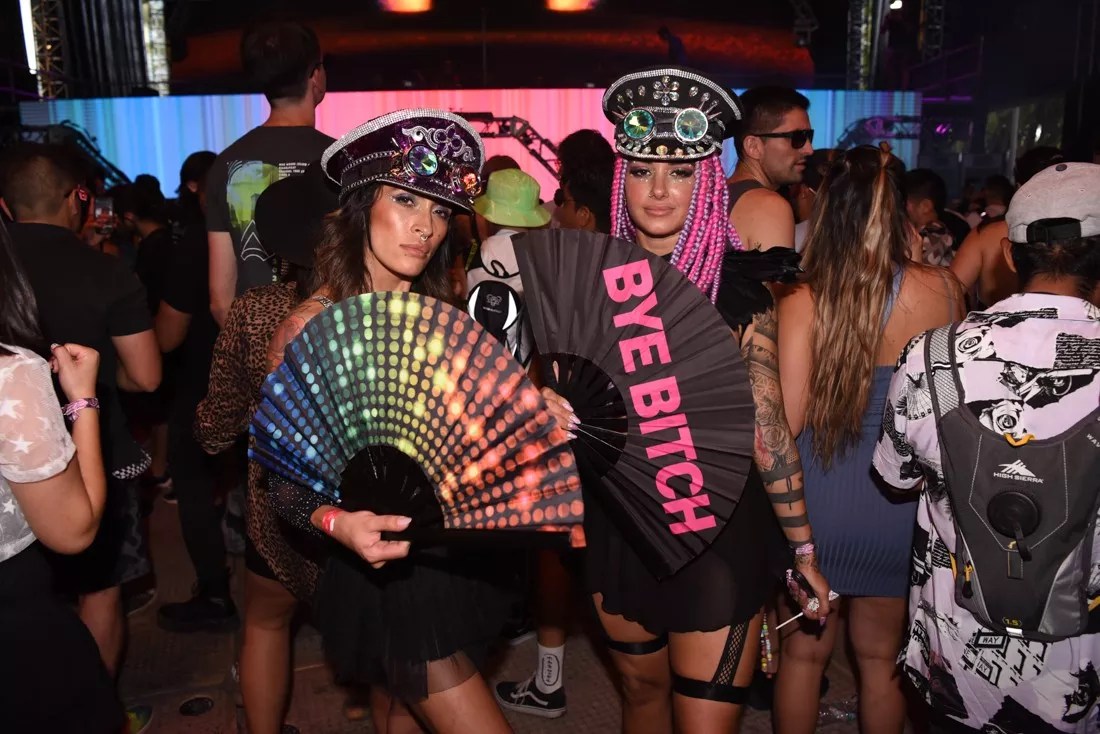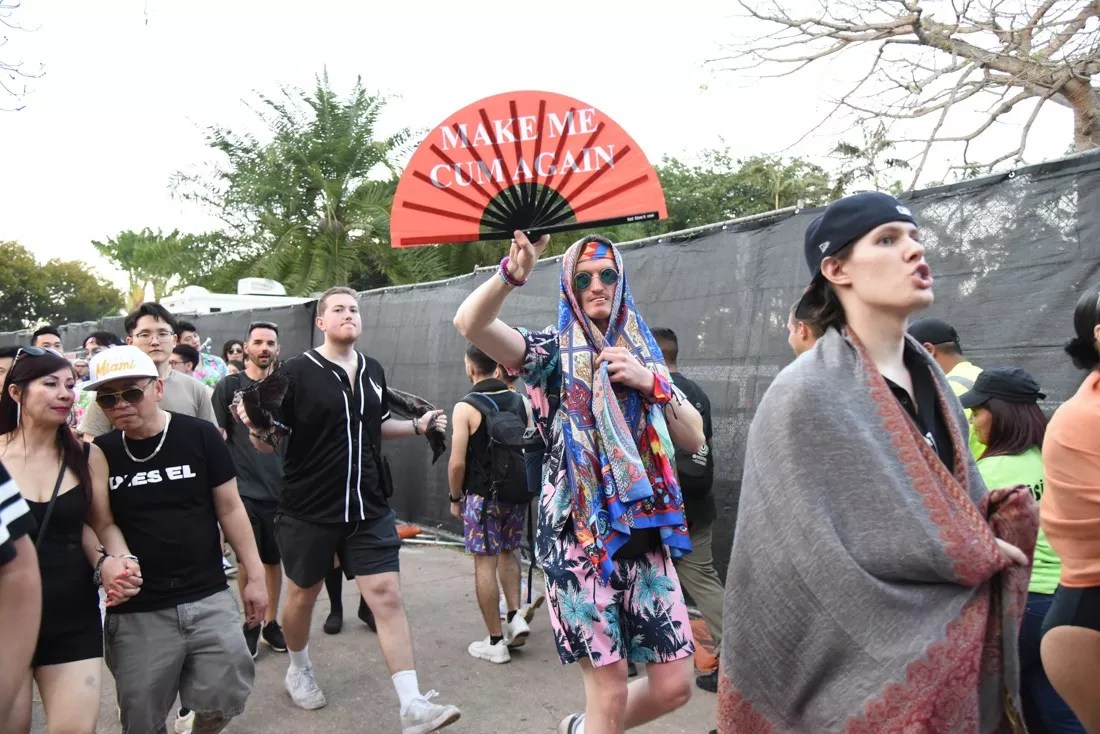
Photo by Michele Eve Sandberg

Audio By Carbonatix
Last month, Carl Cox debuted his hybrid-live setup at Ultra Music Festival. He used Ableton and hardware to extend loops, add hefty effects, flatten the crowd with pounding bass and threw in some obnoxious, unsynchronized claps to psych everyone out.
Actually, the last element was the crowd interjecting its own beat via the ubiquitous folding fan.
Ravers have invaded the decks with their use of folding fans – be it at the club, the festival, or the day party. What you’d expect to be a tool to cool down has been repurposed to clap while the DJ spins.
With a wrist flick, one can unravel and retract a folding fan quickly to produce a boisterous clack. Why do people do it?
To gain insight, I toured Ultra’s festival grounds and, like a 1980s news anchor interviewing mischievous teenagers, I asked attendees: “Why do you clap?”
But first, a brief history of how the folding fan likely originated in the gay dance-music culture and how the heterosexual community usurped and diluted any meaning with cacophonous beat matching.
InMagazine writer Bobby Box admits the history, if there truly is any, is hazy at best.
On the one hand, there is a primal functionality: Fans cool you off.
Fans have existed for millennia – probably first used by ancient civilizations who waved a palm frond to cool themselves off. Folding fans have been in vogue from seventh-century Japan to medieval Europe. And as one Reddit user put it in Box’s article: “I don’t think there is a ‘history.’ They are fun, they are sassy, they are used regularly for drag performances. They just sort of have a natural place at circuit parties.”
But Box’s historical analysis digs deeper.
“In past times, gays were not accepted in general [Western] society, so it was not unusual for gay men from Europe and America to live and work in places like Morocco, Thailand, Vietnam, China…to follow their sexual inclinations…the fan, as an item of flirtation, was taken to an art form in Spain, Japan, and China.
“Since some gays were/are somewhat effeminate in their seductive personas, fans were part of their flirtatious repertoire. Over time, this predilection that gay men had for fans made its way to North America, where it served the same purpose whether it was being held by an affluent straight woman or a gay man: to convey opulence…and to get some dick.”
Assuming folding fans were initially a symbol of gay pride, the heterosexual community (myself, as a cis, straight white man, included) appropriated it and warped the meaning. If you type “rave fans” into Amazon’s search box, it returns more than six pages of results. One says “Move I’m Gay,” while another, rich in irony, displays the DARE logo. Very original.

No, sir, I will not.
Photo by Michele Eve Sandberg
Whatever the history, fan clapping remains divisive. At Ultra, one friend shouted, “Stop! Please stop!” to no one in particular as a cabal of clappers unfurled their fans. But people love to clap; some believe it adds holistic energy beyond anything a producer will be able to bring to the dancefloor.
“It goes with the music,” one attendee explained. “Once you do it, someone else catches on. And everyone goes with the flow. It creates a whole vibe.”
Added another: “Once you hear the beat, you’re the one outlier. It means the beat is really good.”
Here are two reasons this is a raver’s fallacy.
First, there are the limits of human dexterity. Say you’re at a set where the DJ plays at 130 bpm. To synchronize with the DJ would require the speed and mobility of a hummingbird – and, on top of that, an impossibly well-oiled, precision-engineered fan to unfold accordingly.
The second issue is physics. Depending on where you’re situated, a beat arrives at infinitesimally different times. The nearer the stage, the sooner the sound hits you; the further away from the speakers, the longer it will take for the sound to get to you. Same goes for the clap. This leads to chaos.
Another attendee admitted she claps, but, for some reason, only during the daytime. Fearing she may have incriminated herself, a friend interjected: “I fucking hate it! She doesn’t do this!”
If you want to stay on your phone and record the whole set, that is your God-given raving right. Want to lead the always enchanting, “Woop! Woop!” Go with gusto – I may even join you.
But the fan-clap must cease. At best, it’s bothersome; at worst, it’s an appropriation of a community that spurred the dance-music movement as we know it.
I can dance to your beat, but I will not fan-clap to it.